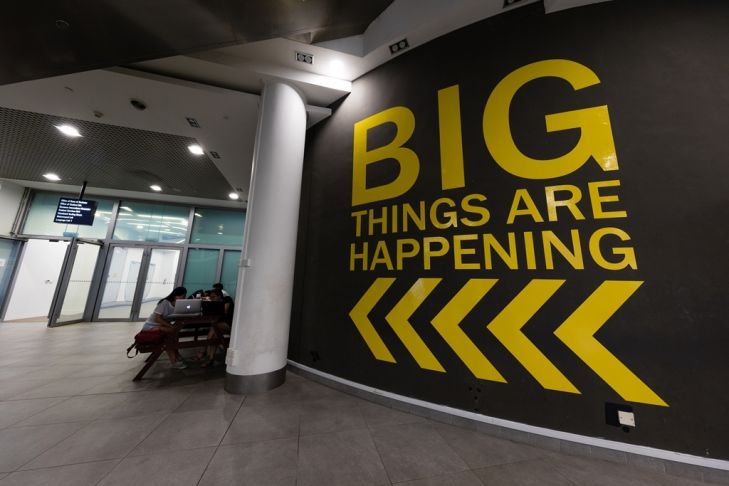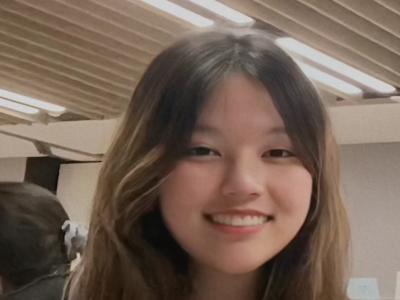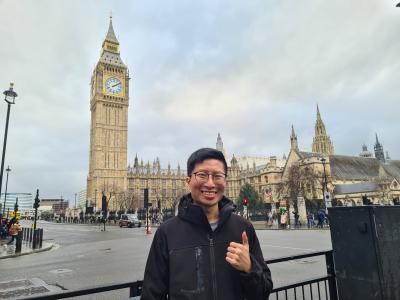
How can small and medium enterprises (SMEs), start-ups and social enterprises contribute to a sustainable society? Why is it important for these companies to integrate sustainability into their operations? What competencies and resource support do they need in order to adopt or enhance their sustainability business goals?
These are some of the questions discussed at the “Breakfast Roundtable on Sustainability & Sustainable Businesses: Challenges and Opportunities” held at The Alcove in SMU on 18 September 2018. Jointly organised by HSBC, SMU Academy, SMU’s Institute of Innovation and Entrepreneurship and SMU’s Lien Centre for Social Innovation, the event attracted 50 SMU faculty and staff, HSBC senior management and staff, as well as owners of SMEs, start-ups and social enterprises.
Mr Daniel Klier, Group Head of Strategy and Global Head of Sustainable Finance at HSBC, spoke on the role of HSBC in supporting the transition of the Singapore economy, and the benefits of providing a holistic solution that encompasses all aspects of business.
Other speakers at the Roundtable were Mr Jeremy Lee, Co-Founder of UglyGood; Dr Suen Chun Hui, Founder & Chairman of Providence Community Service; Mr Wilson Ang, Executive Director of Global Compact Network Singapore; Mr Marcus Wu, Chief and Owner of Rubato Modern Italian Kitchen; Ms Phua Huijia, Founder of Skillseed Pte Ltd. They shared insights on their efforts to transition to a sustainable global supply chain. The discussion was moderated by Dr Lim Lai Cheng, Executive Director of SMU Academy.
The roundtable was the inaugural event organised under the HSBC-SMU Sustainable Enterprise Initiative, which has been established to support SMEs, start-ups and social enterprises in their journey towards sustainable practices and business models.
With a grant of $300,000 in the first year from HSBC, SMU will contribute through training, consulting and mentoring, as well as specialised programmes supported by our research capabilities to help companies balance environmental, social and governance considerations and their business goals.
SMEs can tap on a HSBC grant to build capabilities by participating in training programmes at SMU Academy to enhance their business model, human capital development and operations. To date, 19 SMEs are working with SMU Academy on their sustainability proposals. Among them are World At Your Feet, a designer shoe company founded by Sarah Swee, which is exploring the use of sustainable materials and leather alternatives and substitutes such as pineapple and mushroom pulp for its footwear; Sinfootech Pte Ltd, owned by Jonathan Ng, which is experimenting with the use of commercial whey waste to manufacture wine using technology and IWA Design, a furniture and interior design firm focused on green material that goes beyond wood.
According to Dr Lim Lai Cheng, Executive Director of SMU Academy, the SMEs in the programme have clear ideas of how they wish to make an impact on the environment and the next generation of consumers through creative and novel practices. Many have, for instance, started sourcing for eco-friendly ingredients or suppliers who support sustainable practices as part of their supply chain.
SMU’s Lien Centre for Social Innovation (LCSI) will provide a 12-month intensive mentorship programme for three aspiring young leaders who are keen to develop social ventures focused on an environmental sustainability challenges. The “Change Leaders” are paired with relevant and experienced mentors and will receive guidance from the Centre. They are provided with a stipend from the HSBC grant to allow them to develop their social venture and prototype it. Built-in milestones and regular progress assessments will be made to ensure they stay on track. Additionally, they will be committed to giving back to the wider SMU and Singapore community by sharing their skills and expertise with students and professionals in their respective fields through activities.
One Change Leader, under the mentorship of LCSI, is Jeremy Lee, Co-Founder of UglyGood which helps businesses to turn waste into resources by providing innovative end-to-end upcycling solutions. Organic waste by-products such as fruit waste, coffee waste, sugar waste are harvested and leveraged upon into high value products to help businesses become more environmentally friendly and sustainable in their operations, thereby promoting a circular economy with closed-loop solutions.
Mr Jonathan Chang, Executive Director of SMU’s Lien Centre for Social Innovation said, “When we select a change leader, we invest in the personal growth and potential of our young people to make a positive societal impact. Collectively, they form a partnership of committed individuals that are pursuing their innovative ideas and turning them into real projects on a full-time basis.”
SMU’s Institute of Innovation and Entrepreneurship (IIE) is working with two sustainability start-ups in this first year. These two start-ups will receive a HSBC Seed Prize each, and be incubated at SMU’s Business Innovations Generator, which provides co-working space, mentorship and a community of passionate entrepreneurs. They will also be supported with uniquely developed workshops in the intersection of sustainability and entrepreneurship.
The two sustainability start-ups are UglyGood and Treedots. Treedots’ platform aggregates food producers, importers, distributors, and F&B businesses to facilitate the selling of unsold food items. Leveraging on machine learning and integrated systems, Treedots enhances the efficiency of food distribution and cuts down on food waste.
Mr Hau Koh Foo, Director of IIE, commented “Sustainability is one of the greatest challenges in the 21st century, and entrepreneurship will be an integral part of the solution. SMU has teamed up with HSBC to empower entrepreneurs to develop innovative solutions that can address conservation and environmental problems at scale.”
Featured photo: Two start-ups receiving the HSBC Seed Prize will be incubated at SMU’s Business Innovations Generator (BIG).


